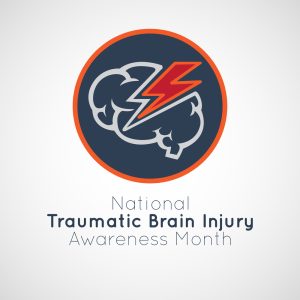
 Traumatic brain injury often occurs as a result of a severe sports injury or car accident.
Traumatic brain injury often occurs as a result of a severe sports injury or car accident.
Immediate or delayed symptoms may include confusion, blurry vision, and concentration difficulty. Infants may cry persistently or be irritable.
Treatment may involve rest, medication, and surgery.
TBI is a major cause of death and disability
There were about 61,000 TBI-related deaths in the United States in 2019.
That’s about 167 TBI-related deaths every day.
TBIs affect the lives of people of all ages. Anyone can experience a TBI, but data suggest that some groups are at greater risk of dying from a TBI or experiencing long-term health problems after the injury.
Examples of groups who are more likely to be affected by TBI, include:
- Racial and ethnic minorities
- Service members and Veterans
- People who experience homelessness
- People who are in correctional and detention facilities
- Survivors of intimate partner violence
- People living in rural areas
A TBI may lead to short- or long-term health problems
Depending on the severity of the injury, those who get a TBI may face health problems that last a few days or the rest of their lives. For example, a person with a mild TBI or concussion may experience short-term symptoms and feel better within a couple of weeks or months. And a person with a moderate or severe TBI may have long-term or life-long effects from the injury.
A TBI during childhood may affect brain development
TBI affects children differently than adults. An injury of any severity to the developing brain may:
- Disrupt a child’s development
- Limit their ability to participate in school and other activities, like sports
As a result of a TBI, children may experience changes in their health, thinking, and behavior that affect learning, self-regulation, and social participation, all of which are important to becoming a productive adult.
TBIs may be missed in older adults
Older adults are more likely to be hospitalized and die from a TBI compared to all other age groups.11 Still, TBIs may be missed or misdiagnosed in older adults because symptoms of TBI overlap with other medical conditions that are common among older adults, such as dementia.
Healthcare providers should check for signs and symptoms of TBI if an older adult has:
- Fallen or has a fall-related injury, such as a hip fracture
- Been in a car crash
This is especially important among older adults who are taking blood thinners as these medications may increase the risk for bleeding in the brain following a TBI. Bleeding in the brain after a TBI may put a person at risk for more severe injury or death.

